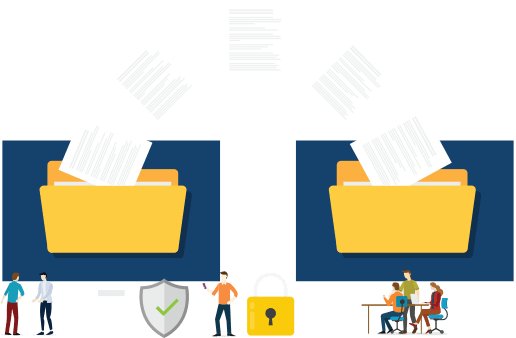
Server Backup Solutions –
Why You Need One If You
Plan on Staying in Business.
The cold hard truth is that if your business loses its data, the odds are that you won’t be in business one year down the road. Every single year, disaster strikes countless businesses racking up millions of dollars in damages.The effect of losing unrecoverable business data is catastrophic, so I’ll ask this right up front, “Do you have a disaster recovery plan in place?” If not, why not?!” It’s vitally important to preserve the integrity of your data and fortunately, there are now many different approaches you can take, other than DAT drives of years long past. Do not risk lost productivity and missed sales opportunities.

Does IT hardware ever fail? Of course it does!
When hardware like motherboards melt, power supplies burn up, disk drives crash, every piece of data you have on your server, be it a VPS or dedicated server, is at risk. Depending on your disaster recovery scenario, restoring your data may take minutes, hours or days, or may never happen. Before disaster strikes, now is the time to develop a comprehensive disaster recovery solution, to ensure the continuity of your business’s continued success.

Unmetered managed backups are highly recommended.
A number of hosting providers now offer unmetered managed backups, which means their team of restoration experts can bring your business operations back online at a moment’s notice. They typically perform the initial setup and configuration of your solution, simplifying the process so that it’s so automatic, you shouldn’t even have to think about it.

Man-made and natural disasters happen all the time.
Many a disgruntled employee has sabotaged their company or organization’s IT servers, but then again hundreds of buildings burn to the ground every year OR get flooded, destroying terabytes of data in the process. I’ve seen viruses take down networks for weeks at a time too. So what are the solutions that are currently available?

One question always asked, “What if we lose power during the backup?”
Unfortunately, not all backup solutions are created equal, so the answer to what happens if we lose power during a backup varies with the solution. Event managers offer some resolution as they will allow backups to resume, while retaining what has already transferred.

Ensure remote backups traveling via the Internet are encrypted.
Remote backups are often as easy as installing a software client on your PC or network server, then configuring the set up via a wizard. As part of that installation, backups can be set to run at different intervals, like at the end of the day, or several times a day. Security is key though, so be sure to encrypt your communications with a program like DES, Blowfish or other encryption algorithm. You should also look for some type of notification that your backup completed with or without

Look for solutions that allow access to incremental backups.
Once your data has been backed up, most company’s eventually find that they may need access to just a portion of that data, so look for solutions that offer instant access to all versions of your files. That would include the very last incremental backup, the initial backup and all versions between the two.

Geographic redundancy is another viable solution.
Essentially, geographic redundancy simply means that your data is replicated in two geographically separate sites so that your applications can switch between the two locations in the event of a disaster.

What about the expense?
Relax, the expense of a backup solution is wholly manageable given the critical nature of ensuring your data’s integrity. The primary determining factors in price are the amount of disk space you’ll require, the number of users with access to the data, how many devices are being backed up, what operating systems are supported and the type of security required.

